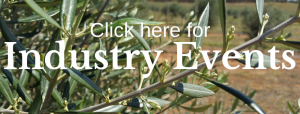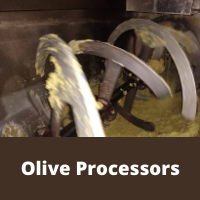Olive Oil Storage Issues with Pablo Canamasas
Held 3rd August 2021
A presentation and discussion around the critical control factors for the storage of olive oil after processing, including the use of ‘racking off’, ‘purging’ and ‘filtration’.
- the origin of olive oil defects:
- fusty/musty
- winey/vinegary
- muddy sediment
- rancid
- the application of:
- racking off
- purging
- filtration
Click here to access the recording.
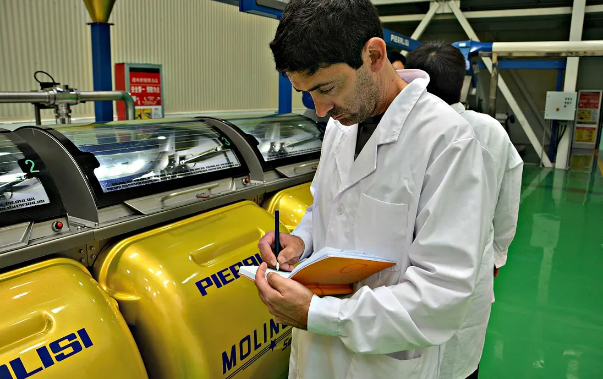
Pablo Canamasas lives in Argentina and is an agriculture scientist specializing in olive oil production and oil quality. He has been in the olive industry for 26 years, spending most of his professional carrier Oil Production Technical Manager in Australia. Currently, he is an olive oil production consultant in over ten countries including North America, Japan, Argentina, Australia, Chile, Brazil, Israel, China, Mexico and New Zealand.
Initially Pablo specialized and trained in olive oil and table olive production in Spain and Italy. He has undertaken valuable olive oil processing research funded by the Australian Government and published numerous research papers on olive processing. Pablo has broad experience in modern olive oil extraction techniques, olive processing, oil blending and quality control. He has extensive experience in olive oil tasting and has regularly been invited to judge at many competitions including The Australian National Olive Competition, Melbourne’s Royal Agricultural Society of Victoria Olive show, Royal Adelaide Olive Awards, Fino Oliva Show in Brazil and the South Africa Olive Awards.
He has had wide-ranging experience in the design and development of olive oil processing facilities and in the continual improvement of their industrial efficiencies. Pablo is respected worldwide and is a regular key speaker on olive oil and processing courses, conferences and seminars around the world including World Congress.
Pest & Disease Management with Alison Mathews
Held 31 August 2021
A presentation and discussion around the Management of Black Scale and Apple Weevil in Olives.
A discussion with WA crop protection specialist Alison Matthews around the Management of Black Scale and Apple Weevil in Olives, including a review of RIRDC Publication 12-019:
Download review here
This webinar covered pest management in olives, focussing on:
- Black Scale:
- identification
- pest status
- Apple Weevil (Curculio Beetle):
- identification
- pest status
- Other significant pests of olives
Click here to access the recording.

Alison Mathews is a research scientist in crop protection within the horticulture section of the Department of Primary Industries and Regional Development (DPIRD) in Western Australia, based at Manjimup. She conducts research and extension into crop pests for a whole range of horticultural crops in the south west, providing information to industry and is available to assist with commercial pest enquiries.
Alison has worked for DPIRD since 2006, working in projects looking at management of dryland salinity, vegetable nutrition and irrigation management before moving into her current crop protection role. Prior to this, she studied agricultural science at the University of Tasmania and completed her honours in entomology.
Alison worked alongside Stewart Learmonth prior to his retirement as part of succession planning to ensure continuing entomological expertise within DPIRD to support horticultural industries in south west Western Australia. Alison is currently working on projects with the avocado and truffle industries, and recently completed projects with the pome fruit and olive industries.
Table olive cultivars with Professor Stan Kailis
Held 28 September 2021
A presentation and discussion with WA olive specialist Stan Kailis around broadening the selection of Australian table olive cultivars including the outcomes of the AOA 2021 survey results on table olive varieties grown in Australia.
This webinar covered table olive cultivars including:
- What makes a good table olive cultivar?
- Styles of table olives suitable for the Australian market
- Major table olive processing cultivars – International
- Major table olive cultivars – Australia (AOA 2021 table olive survey outcomes)
- Opportunities for Australian table olive producers
Click here to access the recording.
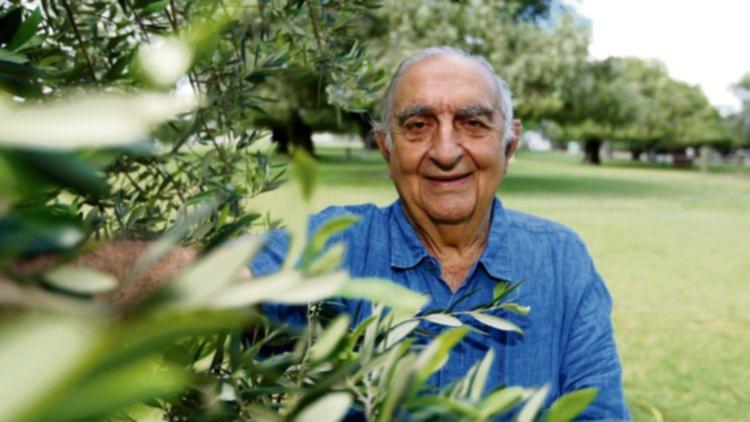
Professor Stanley (Stan) George Kailis has undertaken teaching and research in tertiary institutions, Curtin University of Technology and the University of Western Australia in the areas of food and drugs for over 50 years. He holds a Diploma in Pharmacy, a Bachelor of Science Degree with first class honours and Doctoral degree in Science. With respect to Curtin University he is a Fellow and with the University of Western Australia he is a past Professorial Fellow.
His expertise relevant to food is in nutrition, the Mediterranean Diet, and quality and safety of olive products especially table olives. Stan has also co-authored international reference books on table olives and Olive propagation as well as chapters in key texts on table olives and journal articles in refereed journals. He has collaborated with and/or delivered presentations in Greece, Italy, Spain, USA and New Zealand.
He has been recognised by both the Australian Olive Association and the Western Australian Olive Association for his developmental work in the establishment of the Australian Olive Industry. He is currently a member of the AOA National Table Olive Committee and the Director of the Australian Mediterranean Olive Research Institute.
EVOO storage considerations with Jamie Ayton
Held 5 October 2021
A discussion with olive oil specialist Jamie Ayton around the Effect of Storage Containers on Olive Oil Quality, including findings of a 2021 review of RIRDC Publications 09-160, and 12-008.
Download review here
This webinar covers the critical control factors for the storage of olive oil after processing, including:
- The major risk factors for olive oil quality under storage:
-
- Heat,
- Light,
- Oxygen
- Time
- Changes in oil chemistry and sensory parameters under various storage conditions:
-
- Peroxide value (PV), UV absorbance at 268nm (K268) and free fatty acids (FFA)
- Pyropheophytin a (PPP), 1,2-diacylglycerols (DAGs) and Induction Time (IND)
- Polyphenols, α-tocopherol, chlorophyll, fatty acid composition (FAP)
- Sensory attributes
- The effect of different types of storage containers on the quality of olive oil during storage, including:
-
- Polyethylene, nylon,
- Metallised polyester, silver foil, HDPE
- Multi layered products containing more than one type of material.
Click here to access the recording.

Jamie Ayton heads NSW Department of Primary Industries edible oil research program. Jamie joined the former NSW Agriculture in 1995 and has been involved in a number of olive oil research projects investigating the effects of cultivar, harvest timing, irrigation and processing on the quality of olive oil produced in Australia. He, along with the laboratories technical staff, has accreditation from the International Olive Council (IOC) for the detection of adulteration in olive oil and have been involved in the program since since 2001.
Jamie is also a founding member of the Wagga Wagga Olive Oil Sensory Panel, which has accreditation from the IOC and has been involved in the program since 2003.
Current projects include: Compliance of Australian olive oils to international standards | Multi-Scale Monitoring Tools for Managing Australian Tree Crops – Phase Two project | Effects of frying on edible oil quality.
2021 Processing Webinar Series
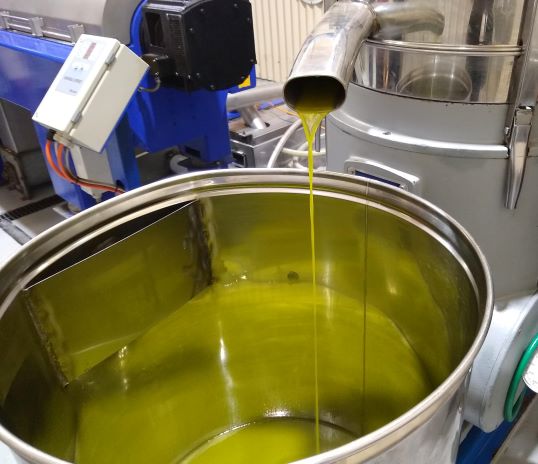
The AOA presented a two-part webinar series on olive processing in March 2021. Both webinars were presented by international olive oil production consultant, Pablo Canamasas.
Webinar 1: Pre-season considerations for EVOO making
Webinar 2: Technical aspects of EVOO making
The video recordings and PDFs of the presentations are available for purchase. Purchase tickets below.
Webinar 1:
This first of two processing webinars with Pablo held in March 2021 was focussed on the preparation for best quality EVOO production. It covered:
- Harvest plan considerations
- Factors that may alter the harvest plan
- Processing plan considerations
- Staff aspects
- Processing documents
The format is a 30 minute presentation followed by a Q&A session.
The session runs for approximately one hour and held in a Zoom Meeting format. A link to the recording and PDF presentation will be provided via email upon purchase.
Levy payers $20 plus GST. Non-levy payers $40 plus GST.
Purchase tickets here
Webinar 2:
This webinar was held on 25 March 2021 and covered technical aspects of EVOO making:
- Crushing
- Malaxing
- Processing aids
- Horizontal centrifugation
- Vertical centrifugation
The format is a 60 minute presentation followed by a Q&A session.
The session runs for approximately one and a half hours and held in a Zoom Meeting format. A link to the recording and PDF presentation will be provided via email upon purchase.
Levy payers $20 plus GST. Non-levy payers $40 plus GST.
Purchase tickets here
OliveCare® Best Practice webinar series
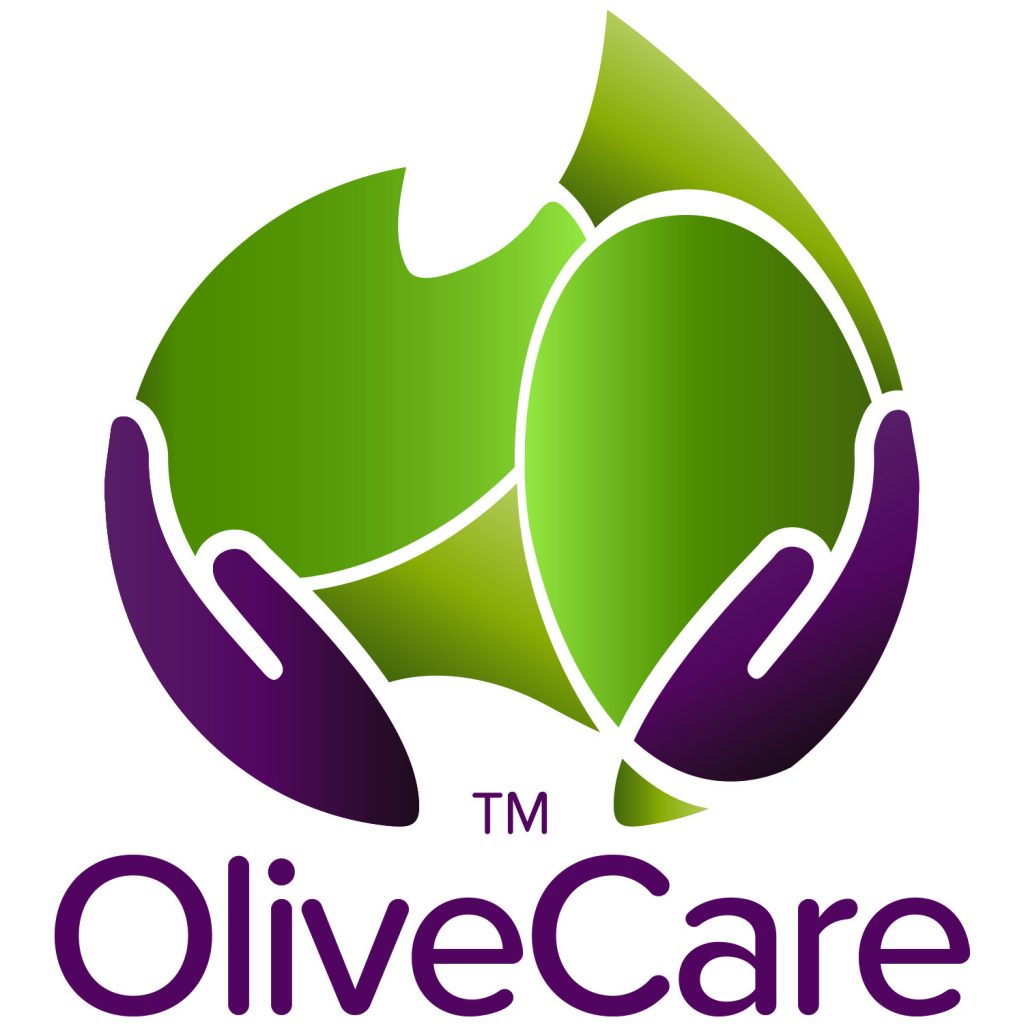 With Peter McFarlane, BAgrSc.(Hons), DipEd: The Australian Olive Association’s ex OliveCare® Code of Best Practice Administrator, National table Olive Committee Convener, National Biosecurity Representative and National Agri-Chemical Permits Co-ordinator, consulting to the Australian olive industry since 2008.
With Peter McFarlane, BAgrSc.(Hons), DipEd: The Australian Olive Association’s ex OliveCare® Code of Best Practice Administrator, National table Olive Committee Convener, National Biosecurity Representative and National Agri-Chemical Permits Co-ordinator, consulting to the Australian olive industry since 2008.
This OliveCare® Best Practice webinar series will be of interest and value to all olive growers, processors and marketers of olive products, whether current members of the OliveCare® program or not.
Webinar 3: Table Olives / Olive Paste Production Best Practice – Held 13 July 2021
- Food safety regulations and table olive production in Australia
- The Voluntary Standard for table olives in Australia (12-111)) and OliveCare® product certification – table olives and olive paste
- OliveCare® Food Quality Plans – The major risks to product quality – table olive production best practice checklists
Access PowerPoint presentation here.
Access video recording here.
Webinar 2: EVOO & Flavoured Olive Oil Production Best Practice – Held 29 June 2021.
- AOA product labelling guidelines and Australian Consumer Law
- The Australian Standard (AS5264-2011) and OliveCare® product certification – EVOO and flavoured olive oil
- OliveCare® EVOO Freshness Testing and potential shelf life
- OliveCare® Food Quality Plans – The major risks to product quality – EVOO and flavoured olive oil production best practice checklists
Access PowerPoint presentation here.
Access video recording here.
Webinar 1: Grove Management Best Practice – Held 15 June 2021.
- An introduction to the OliveCare® Best Practice Program
- OliveCare® HACCP Style Food Quality Plans – An Introduction
- OliveCare® HACCP Style Food Quality Plans – On-farm best practice checklists
Access PowerPoint presentation here.
Access video recording here.
Each webinar guides participants through a selection of the following OliveCare® Best Practice ‘Conversations’ that aim to lift grove productivity, achieve product excellence and develop sustainable businesses:
- Grove Establishment Best Practice Checklist, 8 items including nursery plant health status; olive cultivar selection and grove design – for those establishing a new grove or replanting an existing grove.
- Biosecurity Best Practice Checklist, 20 items including nursery plant health status; managing biosecurity risk on-farm, good grove hygiene and monitoring – it pays to be prepared.
- Enterprise Sustainability Best Practice Checklist, 12 items, including managing enterprise risk and benchmarking grove productivity to improve grove profitability.
- Regulatory Compliance Best Practice Checklist, 19 items including being a good employer, COVID-19 compliance, responsible chemical use, food safety and food quality, and Australian consumer law – be a responsible business.
- Environmental & Community Responsibility Best Practice Checklist, 13 items including minimising farm waste, maintaining biodiversity, and contributing to regional communities – build a sustainable future.
- Grove Management Best Practice Checklist, 30 items including soil health and tree nutrition, soil moisture, managing soil salinity, chemical use strategies, canopy management, and harvest management – how to be a leading olive producer.
- Integrated Pest and Disease Management (IPDM) Best Practice Checklist, 23 items including IPDM, cultural management, biological control, physical and mechanical control, use of selective pesticides, and stages of IPDM – achieve effective and responsible use of agri-chemicals.
- Processing Best Practice Checklist, 22 items including EVOO and table olive production.
- Product Quality, Storage & Blending Best Practice Checklist, 12 items including EVOO and table olives – understanding essential elements of olive processing.
- Product Packaging, Labelling & Distribution Best Practice Checklist, 14 items including labelling requirements, transportation, product specifications, retailing and product recall – develop standard operating procedures (SOPs) for finished product packaging and distribution.
 This is part of the Olive levy project Australian olive industry communications and extension program (OL18000), funded by Hort Innovation, using the Hort Innovation olive research and development levy, co-investment from the Australian Olive Association and contributions from the Australian Government.
This is part of the Olive levy project Australian olive industry communications and extension program (OL18000), funded by Hort Innovation, using the Hort Innovation olive research and development levy, co-investment from the Australian Olive Association and contributions from the Australian Government.
